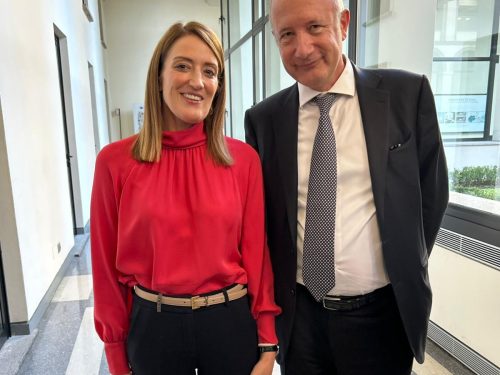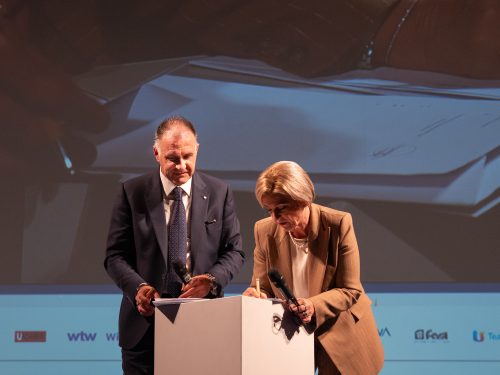News
Share on
"Confindustria appreciates the establishment of a Minister for Sea Policies but, together with all its associative representations involved in the sea economy, also expresses some perplexities. As part of the 'Sea Project' in which the competitiveness of the maritime economy is seen in a perspective of the country's development and European strategic autonomy, Confindustria had proposed to set up a real Ministry of the Sea or at least to provide for effective political coordination between the administrations involved, which often operate in a disconnected manner in the implementation of their respective competences (transport, environment, concessions, industry, tourism, infrastructure, fishing and aquaculture, yachting, territory, shipbuilding and others). But the government's response is unfortunately insufficient. The scope of the new government delegation is uncertain and its regulatory translation leaves one perplexed as to its actual ability to govern such a complex sector', thus Pasquale Lorusso, Confindustria Vice President for the Economy of the Sea to Sole 24ORE.
'The Prime Minister is entrusted with coordination, guidance and promotion, but it is not clear what the role of the Minister is. In fact, chairing, if delegated, the newly created Inter-Ministerial Committee for Sea Policies (CIPOM) seems to be more of a 'political secretariat function' than a function of real impulse, orientation and implementation. Even the role of the President of the Council,' the Vice President continued, 'seems to be carried out only according to the 'Plan for the Sea', drawn up and approved by CIPOM, containing strategic guidelines, the concrete declination of which, however, remains the responsibility of individual ministers. In our opinion, therefore, this is an institutional and organisational design that is unclear especially in its incisiveness. Regarding the contents of the Plan and its strategic directions, several chapters are listed, some defined in a rather generic and unclear way and others in an excessively circumscribed manner. The only clearly defined subject concerns the valorisation of state maritime concessions for tourism and recreation purposes. The Sea Plan also lacks the profiles necessary for a complete strategic visionThis includes: territorial (urban planning of coastal and port areas, economic and logistical, Mezzogiorno and Centre-North); industrial policy (shipbuilding and nautical, also from a European and strategic autonomy perspective); energy and digital transition (decarbonisation of navigation and ports and digital platforms and technologies); port system planning (commercial ports and marinas), administrative regulation and economic regulation (concessions, domestic and international competition); defence and security (also to be considered in the economy of the sea)'.
Lorusso noted that compared to the establishment of a real Ministry of the Sea, which would have required too long a time to set up and a complicated institutional and administrative reorganisation, the decision to have introduced inter-ministerial coordination is understandable, but 'it cannot be based only on a plan of limited strategic directions, insufficient to outline an overall vision, the implementation of which remains the responsibility of the individual administrations involved'.
According to the Vice President, 'a clearer and more effective political responsibility and a broader and more comprehensive vision of the maritime economy is needed. It is therefore to be hoped that the parliamentary passage of the conversion into law will address these critical issues, both institutional and in terms of content, as it would be a shame to waste this important political opening to the maritime economy. Confindustria, together with its associations operating in the maritime sector, have already indicated priorities and measures that should be taken, but, above all, they have pointed out the complexity of the sector and the need to move towards an integrated and coordinated policy. For this - concluded Lorusso - we are and will be willing to offer any contribution useful to effectively promote our country's maritime economy'.

















